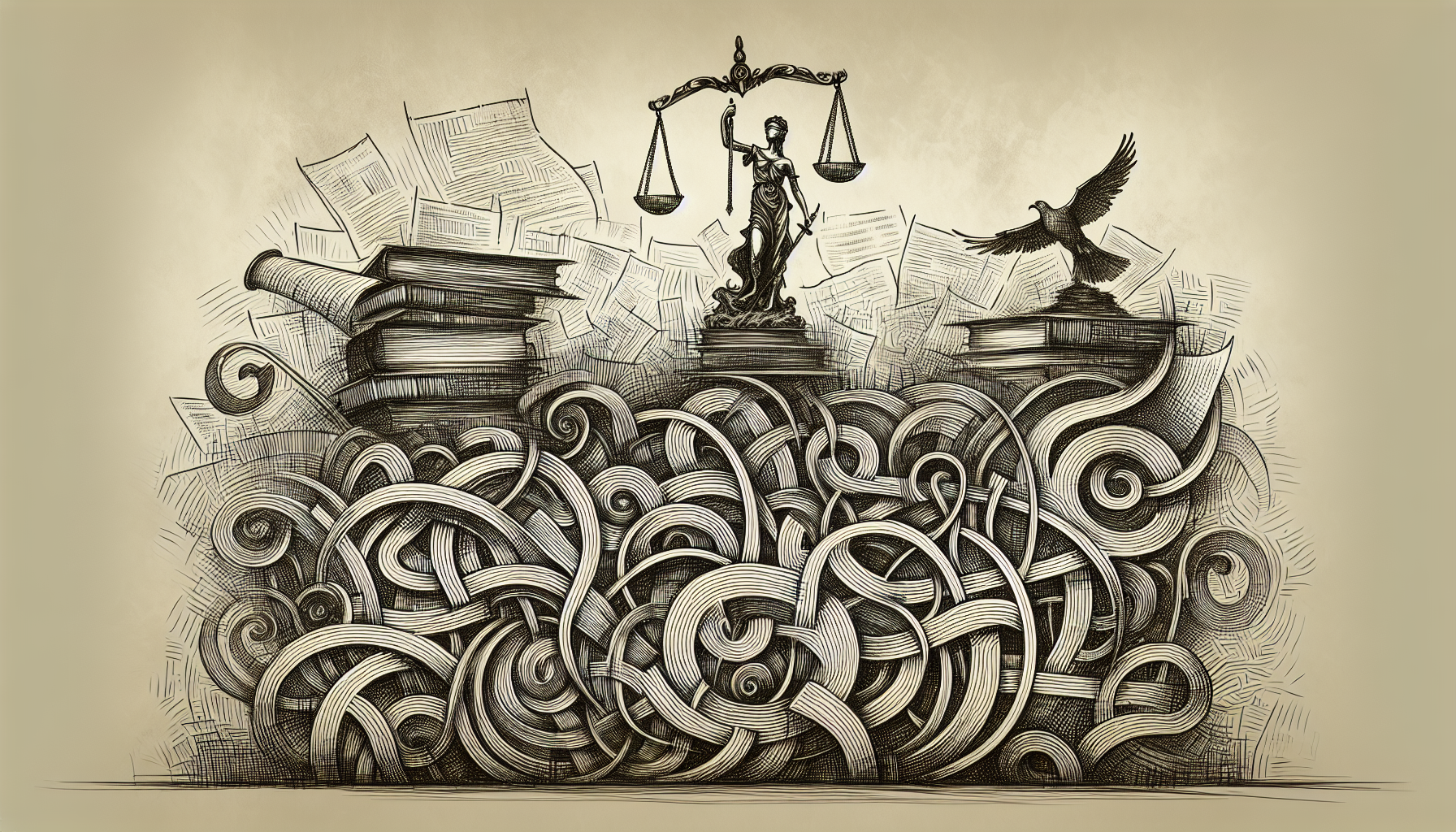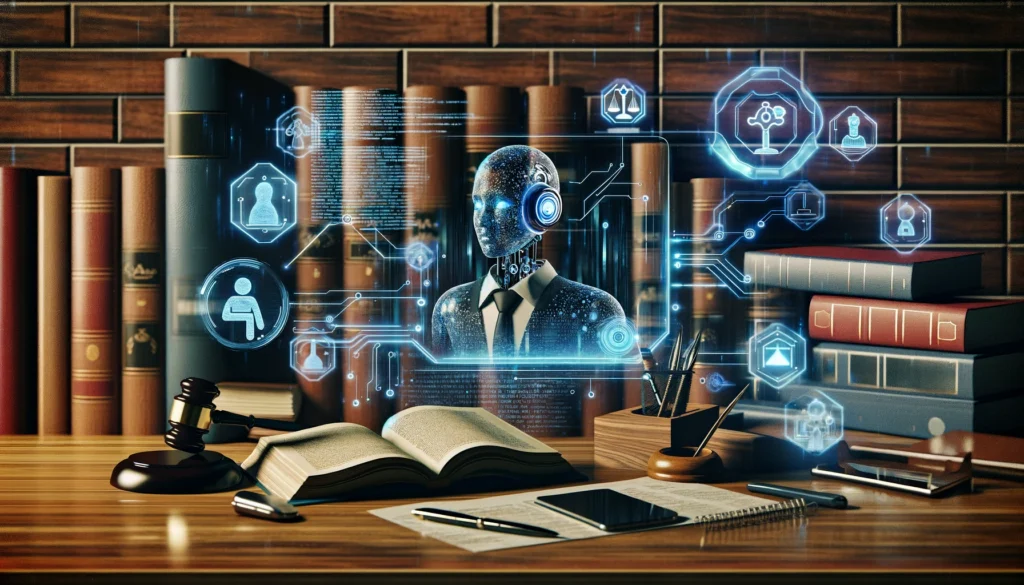
Unlocking the Future of Estate Planning: An Introduction to LLMs in Legal Practice
For high net worth individuals, estate planning is not just a necessity—it’s a complex endeavor requiring meticulous attention to detail and in-depth legal knowledge. As the legal landscape evolves, Large Language Models (LLMs) like ChatGPT are emerging as powerful tools in this domain. These advanced AI systems can assist paralegals by streamlining various tasks, thus improving overall efficiency. This article aims to elucidate the benefits of integrating LLMs into estate planning, particularly for paralegals who handle the lion’s share of research and documentation.
Revolutionizing Routine Tasks: Automating Research and Document Drafting
One of the most transformative impacts of using LLMs in estate planning is the automation of routine tasks. Paralegals often spend a considerable amount of time on basic research and drafting essential documents. With ChatGPT, these tasks can be carried out more efficiently.
Effective prompts can generate preliminary research reports, saving time and ensuring accuracy. For instance, a prompt like “Provide a summary of recent changes in estate taxation laws in California” can yield comprehensive and up-to-date information.
Additionally, ChatGPT can draft initial versions of crucial documents such as wills, trusts, and power of attorney forms. These drafts can then be reviewed and customized to suit specific client needs, thereby speeding up the process and allowing paralegals to focus on more intricate tasks.
Going Beyond Basics: Complex Query Handling with ChatGPT
Moving beyond routine tasks, ChatGPT is also capable of addressing more complex legal queries, which often arise in estate planning for high net worth individuals. To ensure the reliability of ChatGPT’s responses, it is vital to cross-check information against credible legal sources.
For example, when querying intricate legal matters like “Explain the implications of the Generation-Skipping Transfer Tax for a trust established in Nevada,” it is prudent to verify the accuracy of the AI’s response with authoritative texts and legal databases.
This approach ensures that the information provided is accurate and comprehensive, enhancing the quality of legal advice rendered to clients.
Bridging the Gap: Creating Tailored Client Communication
Effective communication is pivotal in managing relationships with high net worth clients. ChatGPT can assist in drafting professional and personalized emails, letters, and updates, ensuring that communication is clear and precise.
For instance, prompts like “Draft a letter to a client explaining the changes made to their revocable living trust” can help generate well-structured and comprehensive correspondence. This personalized approach can significantly improve client satisfaction and streamline communication.
Furthermore, using LLMs to craft messages ensures consistency and professionalism across all client interactions.
Compliance Made Easy: Assisting in Regulatory and Legal Compliance
Navigating through the labyrinth of regulatory requirements is a critical aspect of estate planning. ChatGPT can assist paralegals in adhering to these complexities by guiding them through pertinent regulations and aiding in the preparation of compliance documentation.
To facilitate this, ChatGPT can be prompted with specific queries like, “Generate a checklist for compliance requirements under the California Probate Code.” Such checklists can be instrumental in ensuring that all legal requirements are meticulously followed.
Additionally, LLMs can assist in generating and double-checking forms and documents related to compliance, significantly reducing the risk of oversight or errors.
Efficient Document Review: Streamlining the Vetting Process
The document vetting process in estate planning can be both time-consuming and prone to human error. Leveraging ChatGPT for initial document review can streamline this critical phase. Paralegals can utilize LLMs to identify and flag key phrases, clauses, and potential issues.
For example, by inputting a prompt such as “Review the attached last will and testament for inconsistencies and potential legal issues,” ChatGPT can provide a preliminary review that highlights areas requiring further scrutiny.
Post-initial review, these flagged items can then be meticulously reviewed by paralegals to ensure that all legal language is accurate and comprehensive, thereby accelerating the revision process while maintaining high standards.
Dynamic Workflow Management: Synchronizing Tasks with ChatGPT
Effective workflow management is essential to meet tight deadlines and juggle multiple tasks. LLMs like ChatGPT can assist by organizing schedules, prioritizing tasks, and reducing administrative burdens.
Prompts like “Create a task list for the week including deadlines for document drafts and client meetings” can help paralegals stay organized and focused, ensuring that nothing falls through the cracks.
Embracing Continual Learning: Training and Improving LLM Interaction
To maximize the efficacy of ChatGPT, continual learning and prompt refinement are crucial. Regularly updating prompts based on prior interactions can substantially improve results.
For instance, refining a prompt from “Identify common pitfalls in estate planning” to “Identify common pitfalls in estate planning for high net worth individuals in Texas” can yield more targeted and relevant information, enhancing overall accuracy and utility.
Future-Forward Planning: Ethical and Practical Considerations
While integrating AI into legal practices offers numerous benefits, it’s essential to address the ethical implications. Ensuring confidentiality, data security, and compliance with ethical standards are paramount.
Moreover, as LLMs evolve, staying abreast of advancements and adapting practices accordingly will be crucial for legal professionals to fully leverage these tools while adhering to ethical guidelines.
Closing Thoughts: Maximizing Efficiency and Accuracy with ChatGPT
In summary, the integration of LLMs like ChatGPT into estate planning can radically enhance efficiency and accuracy. By automating routine tasks, handling complex queries, ensuring regulatory compliance, and improving client communication, paralegals can free up valuable time to focus on higher-level tasks.
As the legal industry continues to evolve, embracing these AI tools will be instrumental in shaping the future of legal practice, helping paralegals and attorneys to achieve greater productivity and client satisfaction.


